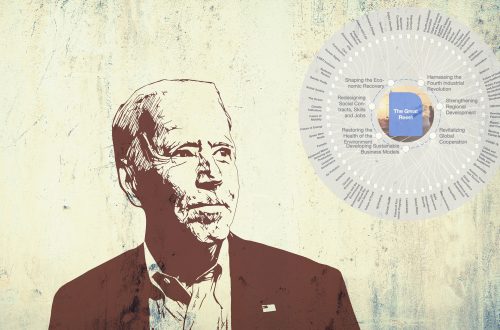Stay Vocal: Local Bills Bolster The Big Fight Back

By James Fitzgerald
A host of states have recently passed legislation in important areas to benefit citizens and counter the Hegelian agenda of globalist administrators. Some of the bills have passed in the House of Representatives but not yet in the Senate, after which they would be signed into law by the respective governors. Some of the topics covered in the bills include critical race theory, 2nd Amendment sanctuary state status, 2nd Amendment rights to carry guns, transgender directives in schools, new voting regulations, so-called vaccines and vaccine ID passports, and Big Tech censorship.
We have listed a lot of new bills by state and subject below, to provide an overview of these positive developments, some of which are firsts for this country.
Be sure to track legislation in your state to see what’s being introduced, contact your reps to support or oppose it, and rally to get them to draft bills supporting our rights. The bills below are all positive, however, there is also unfavorable legislation some states are trying to put through, so pay attention and don’t turn a blind eye.
There are a lot of bills being introduced on a federal level regarding 2A, so get your state on board as a 2A sanctuary state. There are also a lot pertaining to the so-called vaccines, as well as vaccine ID passports, some positive and some not so positive. You can specifically track those by state, through this site.
Arizona
2A Sanctuary State
Governor Doug Ducey signed the 2nd Amendment Firearm Freedom Act (HB 2111) on April 6, which prohibits the state and all political subdivisions from assisting in the enforcement of federal firearm laws and regulations when they are inconsistent with state law.
Election Integrity
Republican Governor Doug Ducey signed a bill in April that outlaws the use of donations to help cover the costs of election offices. The law would prohibit grants such as those given by Facebook’s Mark Zuckerberg to organizations supporting election officials in Arizona and elsewhere to help cover expenses during the plandemic.
Arkansas
Save Adolescents From Experimentation Act
Arkansas has become the first state to outlaw gender-affirming treatments and surgery for transgender youth, after lawmakers overrode the governor’s objections to enact the ban on April 6.
The state’s governor, Asa Hutchinson, had vetoed the bill following pleas from pediatricians, social workers and the parents of trans youth who said the measure would harm a “community already at risk for depression and suicide”.
The bill’s sponsor dismissed opposition from medical groups and compared the restriction to other limits the state places on minors, such as prohibiting them from drinking. “They need to get to be 18 before they make those decisions,” said Republican representative Robin Lundstrum.
The Arkansas House voted 71 to 24 to override Hutchinson’s veto, followed by a 25 to 8 vote in the Senate.
Hutchison has also signed a bill that prohibits transgender girls from participating on sports teams that match their gender identity, including extracurricular and elementary, middle or high school teams. Mississippi and Tennessee have also enacted similar laws.
Critical Race Theory
Senate Bill 627 was lodged by senators Trent Garner, Bob Ballinger and Blake Johnson on April 21 and is entitled: An Act to Prohibit the Propagation of Divisive Concepts; To Review State Entity Training Materials — To Prohibit the Propagation of Divisive Concepts; and to Review State Entity Training Materials.
On Monday, Republican Arkansas Governor Hutchinson allowed the legislation to become law without his signature that will end the use of Critical Race Theory education for state agencies. The law will take effect next year but does not apply to colleges, universities, public schools, local governments, or law enforcement training, according to the Associated Press.
Vaccine Passports
Governor Hutchinson late last month signed into law measures preventing state and local governments from requiring the coronavirus vaccine or proof of vaccination in order to access services. The ban on requiring a vaccine would also prohibit it as a condition of unemployment. The measure includes some exceptions, such as state-owned medical facilities, if approved by Legislative Council.
Florida
Social Media Platforms
Florida’s Senate passed a Big Tech bill that would crack down on censorship.
“Prohibiting a social media platform from knowingly deplatforming a candidate; providing requirements for public contracts and economic incentives related to entities that have been convicted or held civilly liable for antitrust violations; providing that social media platforms that fail to comply with specified requirements and prohibitions commit an unfair or deceptive act or practice; authorizing the Department of Legal Affairs to investigate suspected violations under the Deceptive and Unfair Trade Practices Act and bring specified actions for such violations, etc.”
New Elections Bill
The Republican-controlled Senate passed a bill that placed new restrictions on vote-by-mail and ballot drop boxes. SB90 was passed in the state House by 77-40 and in the Senate by 23-17. Governor DeSantis is expected to give his approval. It would require signature verification for voters, provided by a signature signed on paper and kept on file. Access to drop boxes would be limited to early voting hours unless they are located at election supervisors’ offices. Drop boxes would also have to be monitored by an elections official, and ID would be required when dropping off ballots. Other aspects in the bill include limitations on who can return a finished mail-in ballot, preventing election officials from entering consent agreements, and requiring voters to request a mail ballot every election cycle, rather than every two, as under current law. The bill also mandates that supervisors publish drop box locations 30 days before the election.
Vaccine passports
Florida’s vaccine passport bill was passed in the House by 78-36 on April 29 after the Senate approved it in a 23-15 vote. The bill makes permanent Governor Ron DeSantis’ executive order to bar Covid-19 “vaccine passports”. The order prohibits any Florida government agency from issuing a vaccine passport and restricts any business from requiring them before allowing a customer to enter their premises.
DeSantis signed the Covid-19 vaccine passports bill on May 3 and also announced an executive order that suspends all local pandemic emergency mandates, effective from July 1.
Senate Bill 2006 grants DeSantis the ability to override local emergency orders. The bill also includes a ban on vaccine passports that would levy fines of $5,000 per violation.
“I’m going to sign the bill. It’s effective July 1. I’ll also sign an executive order pursuant to that bill invalidating all remaining local emergency Covid orders effective on July 1,” the Republican governor said in a news conference in St. Petersburg on May 3. “But then, to bridge the gap between then and now, I’m going to suspend, under my executive power, the local emergency orders as it relates to Covid.”
Critical Race Theory
In March, Florida’s Ron DeSantis announced that the state’s curriculum would “expressly exclude … Critical Race Theory”. “Teaching kids to hate their country and to hate each other, it’s not worth one red cent of our taxpayer money,” he said. Florida’s teachers — in contrast to the critical race theory curriculum operating in Connecticut’s state school system — will be incentivized to get credentialed in civics instruction with a $3,000 bonus.
Election Integrity
Florida’s legislature passed a bill last month that included new rules for ballot drop boxes and more ID requirements for voters requesting a mail-in ballot. The bill, passed largely along party lines with Democrats opposing, also included restrictions on behavior that could influence voters within 150 feet of polling places or drop boxes.
Georgia
Election Integrity Act
Governor Brian Kemp signed a huge overhaul of election rules in March that was passed by the Republican-controlled Georgia legislature that enacts new limitations on mail-in voting, expands most voters’ access to in-person early voting. The 98-page bill makes considerable alterations to Georgia’s absentee voting rules, adding new identification requirements, moving back the request deadline and other changes after a record 1.3 million absentee ballots overwhelmed local elections officials and raised Republican skepticism of the voting method. The law also gives state officials authority to take over county election boards if those boards prove to have chronic mismanagement or fraud problems.
Idaho
Critical Race Theory
Idaho’s State Senate passed a bill that has already been adopted by the state House that would ban the teaching of critical race theory in schools. HB 377 will now be sent to Republican Governor Brad Little for approval.
Republican Senator Carl Crabtree, who sponsored the bill, stated, “This bill does not intend to prohibit discussion in an open and free way. It is a preventative measure. It does not indicate that we have a rampant problem in Idaho. But we don’t want to get one.”
“For many people, Critical Race Theory training and educational programs violate both freedom of conscience and freedom of speech. Their freedom of speech is violated by being compelled to admit to complicity in racism and sexism that are unlikely to be true,” said the Idaho Freedom Foundation.
Iowa
Critical Race Theory
Iowa’s bill passed the state Senate in March, and has already halted state efforts to discuss race in schools. The Iowa Department of Education recently postponed a conference on social justice and equity in education, originally scheduled for April, in response to the bill, Iowa Public Radio reported.
“We are mindful of pending legislation that may impact the delivery and content of certain topics related to diversity, equity and inclusion and postponing the conference will ensure the Department and Iowa’s educators are best positioned to comply with any legislation,” the conference website reads. The department plans to hold a conference in the fall.
2A Sanctuary State
In Iowa, Republicans are working “to bring a constitutional amendment before voters in the 2022 general [gubernatorial] election … that would write the right to keep and bear arms into the Iowa constitution”, according to qctimes.com.
Florida, Idaho, Montana, Texas, Iowa
Protection of Women and Girls in Sports Act
Florida’s Ron DeSantis said he planned to sign legislation passed on April 28 that would bar male-to-female transgender athletes from competing in girls’ and women’s scholastic sports. If enacted, the bill would make Florida the sixth state this year, and the seventh overall, to create legislation preventing biological males from participating on female sports teams in schools.
Idaho last year approved the law, which was blocked by a federal judge who issued a preliminary injunction pending the outcome of a legal battle. A similar bill has been seen by Governor Greg Gianforte in Montana, and Republican governors in Iowa and Texas said they would sign such legislation if passed by their state legislatures.
Similar bills were vetoed in April by Kansas Governor Laura Kelly, a Democrat, and North Dakota Governor Doug Burgum, a Republican, who said there had been no example in his state of a transgender athlete seeking to join female teams and expressed confidence in the state’s scholastic athletic authority to handle the issue.
South Dakota Governor Kristi Noem, a Republican, vetoed a measure that would have applied to K-12 and university sports, but later signed an executive order barring transgender participation on female teams at secondary schools but not in colleges.
Kansas
Gun rights
Last Monday, the Kansas legislature voted to override the Democrat governor’s veto on two conservative bills.
The gun bill was approved 84-39 in the House, and achieved a larger majority in the Senate, which voted 31-8 in favor. The new gun law reduces the minimum concealed carry age from 21 to 18. In order to carry a concealed firearm, 18-20 year-olds would have to pass concealed-carry training and carry a permit. It also recognizes the validity of other states’ concealed carry permits. Lastly, the law allows people who have committed lesser crimes and have had those crimes expunged by a judge to regain their right to keep and bear arms after a time.
Election integrity
The Kansas Legislature has overridden the governor’s veto of HB2183. One of the strongest election integrity bills is now law, reported The Sharp Edge.
The bill prohibits Secretaries of State or Governors from making emergency changes, bans private funds — such as Facebook’s Mark Zuckerberg — from being used to administer elections, and bans ballot harvesting.
Missouri
2A Sanctuary State
Missouri may be the next state to incorporate 2A sanctuary legislation. A state Senate committee on April 9 advanced two gun rights expansion bills to the floor. Both have already passed the House. The bill allowing concealed-carry permit holders to bring guns onto public transit is opposed by Kansas City transit officials and Mayor Quinton Lucas. The other bill, an annual proposal, would nullify federal gun laws and regulations, including those that require fees, registration or tracking of guns. It would bar police in Missouri from enforcing those rules and allow those who believe their Second Amendment rights have been violated to sue local law enforcement for $50,000.
Montana
2A Sanctuary State
On April 23, 2021, Governor Greg Gianforte signed HB 0258, which bans the enforcement of federal bans on firearms, magazines or ammunition. The bill applies retroactively to January 1, 2021.
Arkansas, Oklahoma, Montana, Arizona, Nevada and Nebraska have created and passed similar laws this year.
Nebraska
2A Sanctuary State
Governor Pete Ricketts signed a proclamation on April 14 this year that designated Nebraska as a “Second Amendment Sanctuary State.” This proclamation is merely symbolic and does not carry the weight of law.
North Dakota
2A Sanctuary State
On April 26, Governor Doug Burgum signed HB 1383, which designated North Dakota as a “Second Amendment Sanctuary State.”
Oklahoma
2A Sanctuary State Act
Save Women’s Sports Act
Critical Race Theory
The House approved legislation last week to name Oklahoma a Second Amendment Sanctuary State. “Senate Bill 631 states that any law, executive order or similar regulation ordering the buy-back, confiscation or surrender of firearms from law-abiding citizens will be considered an infringement on the rights of citizens to keep and bear arms as guaranteed by the Second Amendment”.
The House also approved the Save Women’s Sports Act “to protect the integrity of women’s and girls’ sports teams,” said Republican representative Brad Boles. Senate Bill 2 would require certain athletic teams to be designated based on an athletes’ biological sex.
“Science tells us that the bodies of biological men have a significant competitive advantage over the bodies of biological women. When we ignore this reality, female athletes are automatically disadvantaged on the field and lose medals, public recognition and even possibly athletic scholarships,” said Boles.
Oklahoma public school teachers will be prohibited from teaching certain concepts of race and racism under the Critical Race Theory bill that was given final approval by the state House at the end of April. The GOP-controlled House voted 70-19 for the bill that prohibits teaching of so-called “critical race theory.”
“Students are being taught that because they’re a certain race or sex, they’re inherently superior to others or should feel guilty for something that happened in the past,” said Republican Kevin West, who sponsored the bill. “We’re trying to set boundaries that we as a state say will not be crossed when we’re teaching these kinds of subjects.”
Tennessee
2A Sanctuary State Act
Tennessee’s senate on April 26 voted to make the state a Second Amendment sanctuary.
Senate Bill 1335 says the state will not enforce any potential federal laws or orders that it believes violate the Second Amendment and will deem them “null, void, and unenforceable.”
The measure also “prohibits the state and political subdivisions from using public resources to enforce, administer, or co-operate with the enforcement or administration of any such treaty, executive order, rule, or regulation.”
The bill, which passed with a 23-4 vote, had “nothing to do with nullification” of federal acts, according to Republican Brian Kelsey.
Texas
Critical Race Theory
As reported in the Citizen Free Press, candidates opposed to teaching “critical race theory” in the classroom have swept a local school board election in Texas. Last week’s election in Southlake saw candidates opposed to the new curriculum win the two open seats on the Carroll Independent School District board overwhelmingly, with nearly 70 per cent of the vote. Candidates backed by the conservative Southlake Families PAC won every race by a nearly 40-point margin, according to Southlake Style.
Election Integrity
Republicans have proposed bills that would limit early-voting hours, control the number of voting machines at each location and allow partisan poll watchers to record footage or photos of people voting, among other measures.
Separately, umpteen lawsuits have been filed by Democrats and civil-rights groups challenging new voting laws. At least six lawsuits have been filed challenging Georgia’s election law. In Iowa, the Hispanic civil-rights group League of United Latin American Citizens filed a case challenging a new law that decreases the number of early-voting days from 29 to 20 and shortens voting hours by an hour, among other changes.
West Virginia
2A Sanctuary State
Critical Race Theory
Governor Jim Justice signed the Second Amendment Preservation and Anti-Federal Commandeering Act (HB 2694) on April 27, which prohibits the federal commandeering of employees and agencies of the state for the purpose of enforcing federal firearms laws. HB 2694 also prohibits police departments and officers from executing red flag laws or federal search warrants on firearms, accessories, or ammunition of law abiding persons.
Illinois, Maryland, New Mexico, Alaska and Colorado have previously adopted Second Amendment Sanctuary resolutions or had county sheriff departments push back against violations of the Second Amendment. Additionally, various counties have adopted Second Amendment sanctuary, safe haven, or other pro-Second Amendment resolutions.
In February, a House bill in West Virginia was introduced by Republican Representatives Riley Keaton, Josh Holstein, Trenton Barnhart and Johnnie Wamsley, to prevent critical race theory in education.
Critical Race Theory Lawsuit Against Biden Administration
America Legal First is pursuing a lawsuit against critical race theory, which was banned in federal agencies by Donald Trump but which has been embraced by the Biden administration, espouses the idea that race is not natural, but socially constructed to oppress and exploit people of color.
AFL is a legal group founded by Trump-era officials to promote the American First agenda and push back against leftist radical movements in the US.
The group is led by Stephen Miller, a former Trump adviser, and includes several high-profile officials from that administration, including former White House Chief of Staff Mark Meadows, former acting US Attorney General Matthew Whitaker, and former Director of the Office of Management and Budget Russ Vought joined the AFL board of directors along with Miller.
AFL launched a lawsuit against the Biden administration and joined other two lawsuits within one month of its establishment. “We’re also looking for plaintiffs—if we can find them—who are willing to stand up and file suit on critical race theory,” Miller said on Fox News.

Subscribe to our newsletter!











9 Comments
Lee Gabor
Very informative article-thank you for spending the time necessary to write it!
Michael l Javick
Too bad there is nothing positive to report from Communist occupied Pennsylvania : Suffering under Commie Wuhan Gov Wolf 🙁
Laura Jackson
I’ve been hearing of these bills, but haven’t been journaling any of them. Thanks so much for putting this together and sharing with those of us who may not be as vocal, but care as much or more than anyone can. What an interesting/exciting time to be alive.
Marty
What about Kentucky ?
Sharon
I like your perspective Laura. These are very interesting times. We all need to stay vigilant and do our part to protect our country in our own personal way.
Gary Rogers
Awesome article, and very informative! My only disappointment, though, was not seeing Ohio listed amongst the freedom-loving states. If there’s only one good thing to come out of this scamdemic, I hope it’s the exposure of all the wolves in sheep’s clothing!
Update: Happy to report that Ohio is trying to pass two laws concerning C-19. One makes it illegal to require mandatory jabs, and the other makes it illegal to require proof of C-19 jabs! There’s hope left yet!
Diane
Pennsylvanians PLEASE get out and vote on May 18th, there are critical questions on the ballot to change the PA constitution and give power back to the people!
Annie Bear
There is a meeting tonight in Southwest Ohio to stop CRT in our
schools.
There is a website that just launched this morning called,
Stop Criti Race Theory dot com.
Paul Velte
Like usual, you think new laws are going to change things. Look, unless the law has TEETH it means very little. We just watched an election in several states, like Pennsylvania, where they violated their own election laws and their own state constitution. No consequence. They still “won” because no one could prove in the short space of a few months, that the violations of law changed the result.
For example, so what if donations are outlawed in Arizona? If the new law fails to specifiy the CONSEQUENCE for it’s violation, it means nothing.
Your article needs to focus on that aspect of these bills. A law without a consequence is no law at all.
I’m a lawyer, I know this.
PS. The best, the only, way to fix election laws is to make their mere violation result in throwing out the questionable ballots. That way, one only has to prove the laws were broken, not that the result of the election would have changed–which is an impossible burden. So, at the precinct level, if it’s proven an election law was violated, you simply do not count that precinct’s votes. Then the fraud does not pay off.